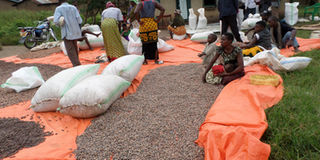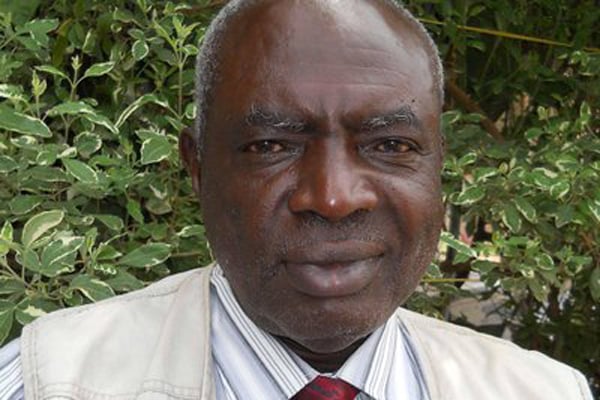Prime
Prioritise cocoa growing, experts advise govt

Collecting and packing of cocoa beans. PHOTOS BY BRIAN SSENOGA.
What you need to know:
18,000:Estimated number of smallholder farmers in Uganda that benefit from cocoa growing.
Experts have asked the government to prioritise cocoa growing as one of the country’s major cash crops.
They argue that the crop is generating more revenue and is considered as the fifth largest export in Africa after Ivory Coast, Ghana, Cameroon, and Nigeria.
Addressing journalists in Kampala yesterday, Mr Hassan Baguma, the chief executive officer of Kakogha Cocoa Agronomist, said the commodity is on high demand and the government has done enough to add value to it.
“Cocoa is an important commodity to Ugandans and it’s high time that we focus on it to bring in more income as well as create jobs. It’s the fourth export foreign exchange earner for the country since the 1950s,” Mr Baguma said.
He added: “In spite of this high potential, cocoa has remained unregulated and under-promoted yet it provides high returns to Uganda’s economy.”
According to agricultural experts, cocoa currently supports more than 18,000 smallholder farmers and Uganda produced 44.7 metric tonnes which fetched Uganda a revenue of $105.8m in 2021.
This means the government collects Shs391.4b from exporting cocoa abroad.
Dr Emmanuel Lyamulemye, the managing director of Uganda Coffee Development Authority (UCDA), said in 2013, the government committed to review existing laws so that they can support the development of the value chains of strategic agricultural enterprises.
“But there is a lot of confusion on how you space the coffee, cocoa. So we need to have an organised system for this highly valued commodity. Cocoa being a large export commodity to more than 20 exporting companies requires specialised knowledge and standards amidst so many crops,” Dr Lyamulemye said.
The Koboko County MP, Mr James Boliba, said cocoa has been struggling without external support.
“Cocoa has been struggling without any government intervention or extra support from the research being done yet the government is realising a lot of money from little export,” Mr Boliba said.
He said the national development plan recognises it as a priority commodity but it needs more resource allocation, and institution framework to promote the crop.
“I’m convinced that if we invest in coffee, tea, cocoa and fish, we can transform this country in a short time into a very high income area, we must prioritise and put money into these strategic crops that can turn life,” Mr Boliba said.
The experts urged the private sector and government not to export raw beans but add value to them so as to generate more revenue.





